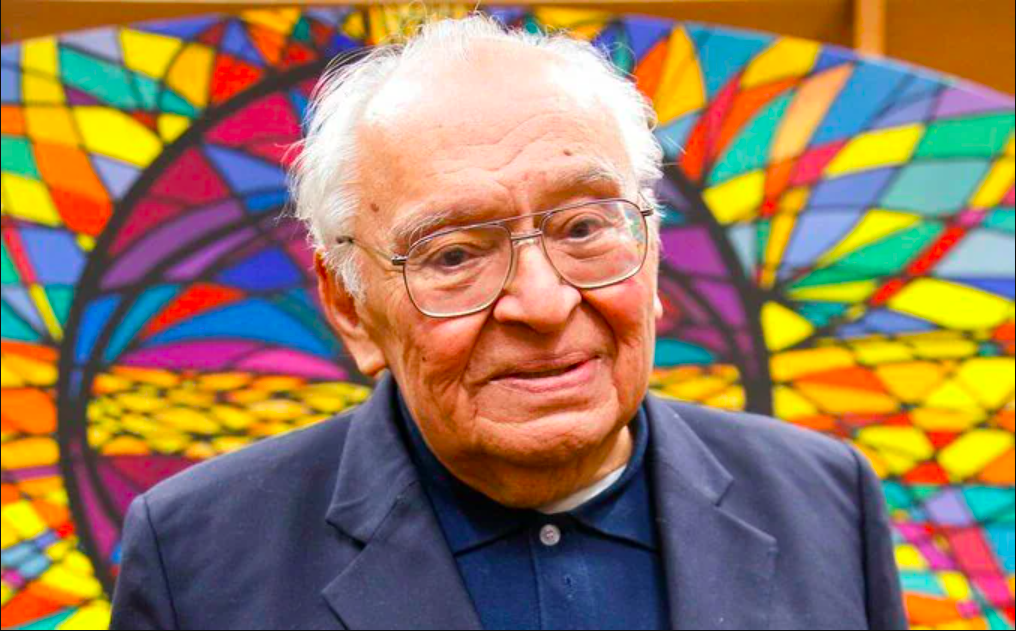
Published 10/23/2024 15:38 | Edited 10/23/2024 16:03
Latin America and its Catholic Church suffered a great loss with the death of Gustavo Gutiérrez Merino, theologian, priest, Dominican and fervent defender of the poor. Gutiérrez passed away this Tuesday (22), in Lima, Peru, at the age of 96, leaving a profound legacy in the Catholic Church and in the lives of millions of believers, especially those who suffer from exclusion and poverty on the continent. The news was confirmed by the Dominican Province of San Juan Bautista of Peru, which also reported that his burial will take place in the Chapter Room of the Convent of Santo Domingo, in Lima.
Gutiérrez, often called the “father of Liberation Theology”, was much more than a theologian. He was a thinker and a man of action, committed to integrating faith with real life, particularly the lives of the poor. Gutiérrez coined the expression Liberation Theology, used for the first time in 1968, at a meeting of the Latin American Episcopal Conference in Medellín (Colombia).
“Theology is a reflection on faith, and what faith has to do is mobilize people for change. The greatest violence is poverty,” he said.
How can we tell the poor that God loves them?
He was born in Lima, on June 8, 1928, into a family that knew firsthand the difficulties of an unequal economic and social system. Since childhood, he faced osteomyelitis, a disease that accompanied him throughout his life, forcing him to use orthopedic devices and, later, a wheelchair. This personal experience with suffering contributed to his unique sensitivity to the most vulnerable and to his deep reflection on the role of faith in alleviating human pain. He graduated in medicine, philosophy and literature at the Universidad Nacional Mayor de San Marcos.
Gutiérrez always believed that “poverty is not a sign of virtue, but of injustice”, and this conviction guided his work, both in thought and in pastoral action. In humble parishes in Lima, such as the Rímac neighborhood, he built a community committed to the Gospel and social transformation. For him, the preferential option for the poor was not just a theological idea, but a concrete response to Christ’s call to serve the least.
From a young age, Gutiérrez found education a way to serve others. Inspiring generations of students, he was an advisor to the National Union of Catholic Students (UNEC) and a collaborator in movements linked to Catholic Action, such as the Catholic Workers’ Youth (JOC) and the Catholic Student Youth (JEC). Through these initiatives, he helped young people to reflect on the presence of God in the world and the importance of a Christian practice that promoted social change. Gutiérrez’s thinking denounces capitalism as responsible for the suffering of many “human brothers and sisters”.
Conservative stigmatization by the Vatican
His involvement in the General Conferences of the Latin American Episcopate in Medellín, Puebla, Santo Domingo and Aparecida was remarkable. He was supported by progressive bishops such as Paulo Evaristo Arns and Pedro Casaldáliga in Brazil and Oscar Romero in El Salvador, all defenders of a Church focused on the poor. However, he also faced criticism, especially from conservative sectors of the Church, such as the archbishop of Lima, linked to Opus Dei, who tried to condemn his ideas.
In the 2000s, Gutiérrez joined the Order of Preachers (Dominicans), finding support in the Dominican community to pursue his mission. Under the papacy of John Paul II, his theology faced resistance and stigmatization, but Gutiérrez maintained a respectful dialogue with the Church hierarchy. With the arrival of Jorge Bergoglio to the papacy, Gutiérrez found an ally in defending a Church focused on the poor.
His book “Liberation Theology: Perspectives”, published in 1971 in 20 languages, was a landmark, offering a new form of theological reflection based on the experience of the oppressed. Published at a time when military dictatorships were in force across the South American continent, Gutiérrez’s thoughts mobilized Catholic leaders to resist these regimes. The work influenced theologians and activists around the world, becoming a foundation for the actions of many who seek social justice through faith. His academic career has earned him more than 30 honorary doctorates and awards, such as the Prince of Asturias Award and the Yves Congar Award for Theological Excellence.
Gustavo Gutiérrez’s death marks the end of an era, but his legacy lives on. His ideas continue to resonate in grassroots Christian communities, social movements and networks of lay people who believe in building a more just world. His life was a testimony that the Gospel is, above all, a call to liberation.
Source: vermelho.org.br

